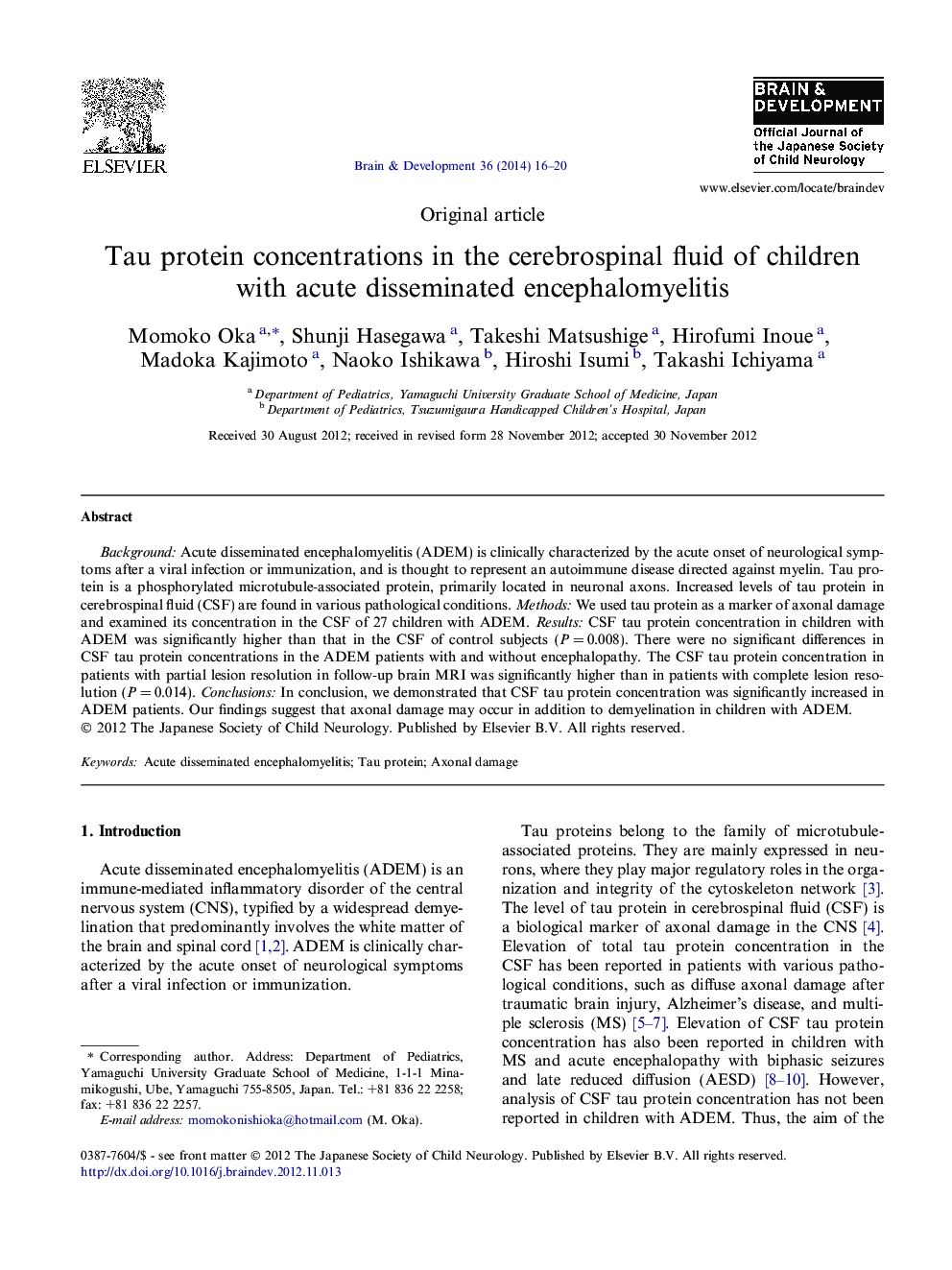| Article ID | Journal | Published Year | Pages | File Type |
|---|---|---|---|---|
| 3037102 | Brain and Development | 2014 | 5 Pages |
Background: Acute disseminated encephalomyelitis (ADEM) is clinically characterized by the acute onset of neurological symptoms after a viral infection or immunization, and is thought to represent an autoimmune disease directed against myelin. Tau protein is a phosphorylated microtubule-associated protein, primarily located in neuronal axons. Increased levels of tau protein in cerebrospinal fluid (CSF) are found in various pathological conditions. Methods: We used tau protein as a marker of axonal damage and examined its concentration in the CSF of 27 children with ADEM. Results: CSF tau protein concentration in children with ADEM was significantly higher than that in the CSF of control subjects (P = 0.008). There were no significant differences in CSF tau protein concentrations in the ADEM patients with and without encephalopathy. The CSF tau protein concentration in patients with partial lesion resolution in follow-up brain MRI was significantly higher than in patients with complete lesion resolution (P = 0.014). Conclusions: In conclusion, we demonstrated that CSF tau protein concentration was significantly increased in ADEM patients. Our findings suggest that axonal damage may occur in addition to demyelination in children with ADEM.
